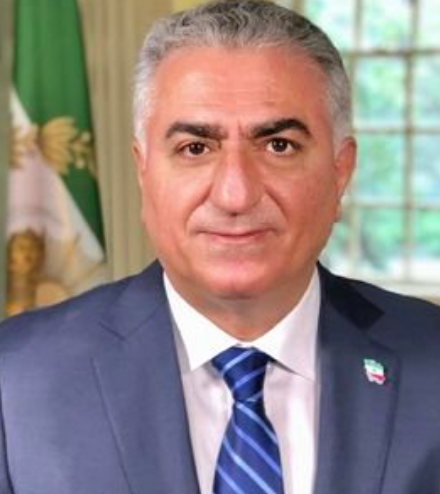Reza Pahlavi, the US-based scion of the former ruling family, is set to visit Israel next week, according to reports. The toppling of Pahlavi' s father in the 1979 Islamic revolution had marked the decisive shift in the relations between Iran and Israel.
The Israeli government announced the visit of Pahlavi to Tel Aviv, calling him the "most senior Iranian personality" to have undertaken a visit to the Jewish state.

Aims to Improve Ties
According to Israel, the visit by Reza Pahlavi will help create a bridge between Israel and the Iranian people, as well as 'express joint opposition to the Ayatollah regime'.
Pahlavi said he will seek to improve Iran's ties with Iran and the Arab neighbors. "A democratic Iran will seek to renew its ties with Israel and our Arab neighbours .... In my opinion, that day is closer than ever," Pahlavi said, according to the statement issued by the Israeli government.
Who is Reza Pahlavi?
Reza Pahlavi is the son of Iran's last monarch Mohammad Reza Pahlavi. He left his home country at the age of 17 and has since been living in the United States. The US had supported his father re-establish monarchy in Iran in the 1950s. A few decades into his rule, Pahlavi faced enormous protests from the Iranian clergy, which was galvanized by the Ayatollah Khamenei, who led the revolution from exile in France.
Mohammad Reza Pahlavi, who was suffering from cancer at the height of the clerical revolution, fled the country in 1979, paving the way for the establishment of the Islamic republic of Iran, which is headed by the hardline anti-Israel clerics.
Pahlavi has often called for the toppling of the Iranian regime and the return to parliamentary democracy. He has been consistently criticizing Iran's human rights violations, hardline religious practice and the oppression of women.
What he will do in Iran
During his trip Pahlavi will visit the Western Wall in Jerusalem, besides holding talks with the government. He will also attend an event in Haifa, where he will meet the members of the Baha'i community, who face oppression in Iran.
Another important event in the calendar is a speech on Iranian democracy. "A democratic Iran will seek to reestablish ties with Israel and our Arab neighbors — perhaps as part of a future Cyrus Accords," Pahlavi said. He also said, according to the Times of Israel, that millions of Iranians reject the regime's 'genocidal anti-Israel and antisemitic policies'.
"The Iranian and Jewish people have ancient bonds dating back to Cyrus the Great and Queen Esther ... As the children of Cyrus, the Iranian people aspire to have a government that honors his legacy of upholding human rights and respecting religious and cultural diversity, including through the restoration of peaceful and friendly relations with Israel and Iran's other neighbors in the region," Pahlavi said, according to the Times.








